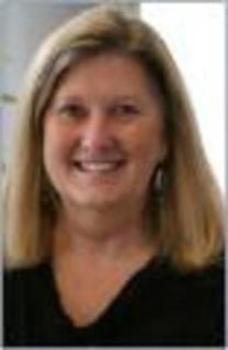This text-based course is a written transcript of the course, “Using Sign in Early Intervention”presented by Dr. Brenda Seal on February 17, 2011.
This text is being provided in a rough-draft format. Communication Access Realtime Translation is provided in order to facilitate communication accessibility and may not be a totally verbatim record of the proceedings.
Click Here to View Supplemental Handouts
>> Amy: Good afternoon, everyone, and welcome to today's expert seminar series, “Using Sign in Early Intervention”, presented by Brenda Seal. Brenda is a Professor of Hearing, Speech and Language Sciences at Gallaudet University. Brenda’s research interests include infant sign language, signing for hearing babies and for deaf and hard-of-hearing babies, including children with cochlear implants. Brenda holds a Ph.D. in Communication Disorders from the University of Virginia, a Master's Degree and B.S. in Speech-Language Pathology from Appalachian State University. Her first professional role involved eight years as a primary school speech-language pathologist at the Virginia School for the Deaf and Blind in Staunton. She followed that with 28 years in the Communication Sciences and Disorders Department at James Madison University where she was a distinguished teacher and Madison Teaching Fellow. Brenda retired from JMU in 2009. She is an adjunct professor at the University of Virginia and is involved in collaborative ventures with students, friends and colleagues at both the University of Virginia and James Madison University. Welcome Dr. Seal and thank you so much for sharing your expertise with us today.
>> Brenda: Are you hearing me? Wonderful. Thank you, Amy. I assume all is well for us to begin, and thank you for the introduction.
>> Brenda: I'm going to get started. Amy gave a very lovely introduction and you all probably know that I wrote it. No, not exactly. (laughter) I wrote the facts. She added the praising words. Here is a screen that shows my day-to-day life at Gallaudet University where 1500 students communicate in American Sign Language or some combination of spoken and sign language.

The students I teach in speech-language pathology are all hearing. We have several hard-of-hearing students in the audiology department, and it is a good fit for me. I'm enjoying it but I also enjoy my collaborative role with JMU and I'm currently at JMU today with this recording.
Objectives
I have five goals for us, and one is to talk about manual development in babies, particularly in the first year of life. How that manual activity or what we do biologically, I assume it is biological since it tends to be well documented across cultures and across babies that are typically developing and babies that have motor or cognitive delays, will move from those expected milestones into gestures and the role they play in vocabulary development in either spoken language development or for those who are profoundly deaf - sign language development.
I'm going to offer you some signs (25 signs) through video that I recommend for working with babies in an early intervention framework whether those babies are hearing or have hearing loss. We'll try to encourage the use of those signs, because the research that we have shows that they are developmentally appropriate.
Then I will try to also encourage the notion that sign itself may not be as critical as is the engagement with the hands. So having given you some thoughts already, I'll ask for just a little feedback on whether or not we're together.
Sounds good to me. Thank you.

